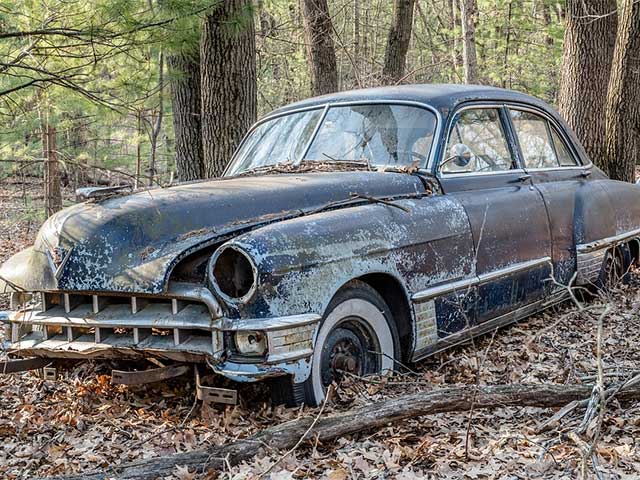What Type Of Car Do You Drive? from Paul Tripp Ministries
For many years, I drove a car that never guaranteed I would arrive at my destination. This mode of transportation was God’s way of deepening my faith. I prayed without ceasing from start to finish.
The sounds this car would make were a clear warning sign that something was wrong. But over time, the screeching and groaning became normal. It was part of my daily routine.
I shouldn’t have been surprised when the car suddenly stopped. But I was shocked, and even personally offended that it would betray me! Any mechanic knew this would happen, but I was so accustomed to the broken car that I had stopped paying attention.
Eventually, I was able to purchase a brand new car. I was in love! The smell when you opened the door. The sun gleaming off the new paint job. The jealous looks from people as I stopped next to them at a red light.
Of course, it didn’t take long for the new car to become old. The smell was gone in a few weeks. My nephew threw up all over the seat. Weather chipped the paint. Curbs scratched the bumper. It became just another old car that I was no longer enthusiastic about.
Where am I going with all of this? I’m convinced that we respond to the brokenness of the fallen world we live in much like we respond to the cars we drive.
In some cases, we have become so numb to the pain and frustration of our environment that we stop paying attention. The stench of sin – both internally and externally – should assault our senses, but we have become so accustomed to it that it doesn’t bother us anymore.
In other cases, because we’re frustrated with the old decay of our environment, when something new arrives on our doorstep, we have way too much hope that it will satisfy. We’re unrealistic about what the Bible promises will happen, and we live with constant disappointment and bitterness.
There’s a better way to respond to our environment. Let me suggest 5 ways:
1. Live Honestly: A lot of our problems are the result of us being dishonest, or unrealistic, with ourselves. The Bible is the most honest book ever written, describing the true reality of what we should expect.
2. Live Sensitively: Don’t allow yourself to become numb to the sin of this world, or of yourself. We should be revolted and grieved when God’s design for humanity is violated.
3. Live Angrily: If we share the sentiment of the Father, we will be righteously angry. This holy rage should spur us on to accountability with our own sin and, as well as biblical activism in our communities.
4. Live Joyfully: It’s easy to become discouraged with the sad state of affairs that is our world. But remember, it’s God’s wise decision to leave us here. Best of all, he doesn’t leave us on our own – Emmanuel is with us wherever we go.
5. Live Hopefully: We must remember that this broken home is not our permanent location, but rather a preparation for a final destination. Someday soon we will all live in the New Jerusalem on a street called Shalom, where brokenness will be no more.
God bless,
Paul Tripp
Reflection Questions
- How have you become numb, or accustomed to, the brokenness of the world? Think of specific sins, internally and externally, that should assault your senses but no longer do.
- Do you put too much hope in the “new” things of this world? What are you currently hoping will satisfy you?
- Pick one of the 5 ways to respond – honestly, sensitively, angrily, joyfully, or hopefully. Which do you need to focus on most this week, and why?

